Ong Ye Kung on not joining the opposition, his language struggle and more, on The Assembly
Singapore’s health minister fields questions regarding whether he had betrayed his opposition-affiliated parents, his 2011 electoral loss and his biggest mistake in office, on CNA series The Assembly.
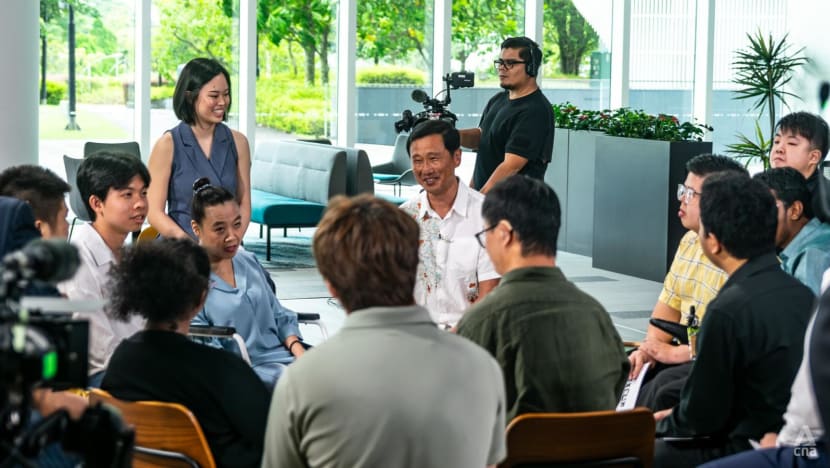

This audio is generated by an AI tool.
SINGAPORE: In his time in politics, Health Minister Ong Ye Kung has faced tough questions on MRT delays, healthcare costs and Singapore’s pandemic strategy.
But it took an 18-year-old, Durkeswaran Krishnan from CNA series The Assembly, to ask him what he does not recall anyone else ever asking: Why did he not follow his father into the opposition?
His late father, Ong Lian Teng, was a Barisan Sosialis Member of Parliament in the 1960s. “My father lived in a different time, (when) there were very divergent positions on where Singapore was heading,” said Ong.
“And he (was particularly) passionate about serving the villagers.”
That dedication to “serving society” and helping those around him had a subconscious influence on Ong. It set him on the path to the civil service, where he eventually “felt that the way to serve” was by joining the ruling party.
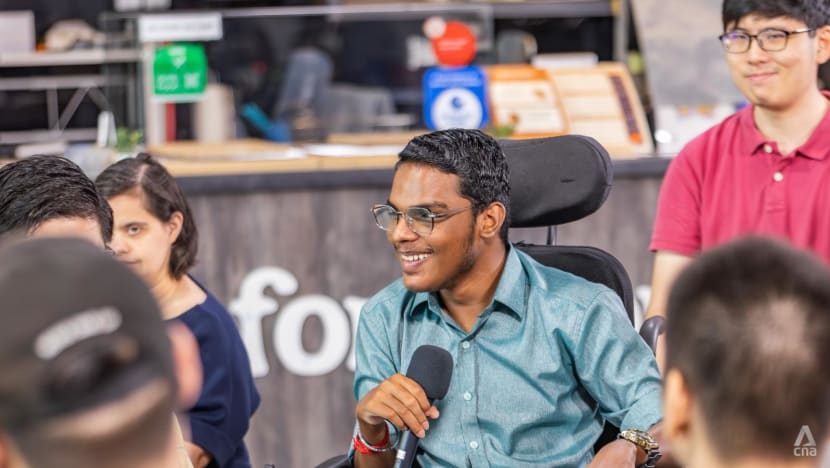
“The parties we chose might be different,” he said in the episode that aired on Wednesday. “Nevertheless, I’m following in my father’s footsteps in many ways.”
His father did not accept his decision immediately. “In some ways, he was torn and therefore asked for more time. And I fully respected that. So (in) 2006, I couldn’t join politics (yet),” Ong recounted.
His late mother, too, was “heavily involved in opposition politics”. A passionate teacher, Ng Soo Lung had mentored student activists who boycotted the 1961 Government Secondary 4 Examination to protest against changes in the Chinese secondary education system.
“Did you ever feel that you betrayed your parents in some way?” asked Stephanie Fam, who has cerebral palsy.
“Yes,” replied Ong to a question that had gone through his mind before. “They were on one side; I’m choosing the other side — am I in some way letting them down?”
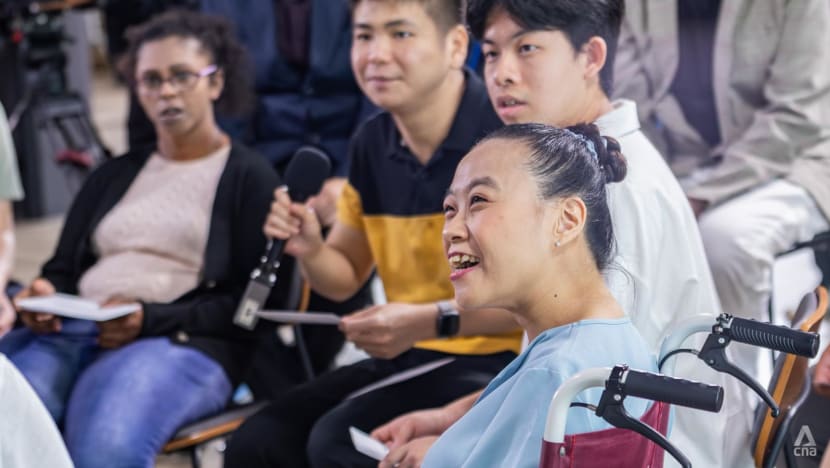
After several conversations over the years, his parents finally accepted his decision, and he stood for election in 2011 with their blessing. But he lost in Aljunied GRC to the Workers’ Party.
“By then, my father had passed away. But my mother was around, and she saw me lose,” he said. “I’m sure, if they’d been around (in 2015) and seen me win, they would’ve been proud.”
The loss stung, worsened by the regret of not having his parents see him elected eventually.
It was also “quite hard” to take because he was entering politics with batchmates such as Education Minister Chan Chun Sing and former Speaker of Parliament Tan Chuan-Jin. They had studied in Raffles Junior College together.
“How come I’m the only one who didn’t get elected?” Ong recalled feeling as he sat down with The Assembly’s neurodivergent journalists to unpack his mistakes, insecurities and achievements, in “probably the most honest interview” he has had.
WATCH: Ong Ye Kung’s “most honest interview ever” with neurodiverse journalists (24:33)
MAKING THE MISTAKE OF OMISSION
After his electoral setback, Ong stayed on in the National Trades Union Congress before transitioning to the private sector in 2013 as Keppel Corporation’s director of group strategy. When he returned to the political arena in 2015, he felt different.
“I don’t think I (would be) who I am without the 2011 setback,” he reflected. “(It) changed the way I feel (about) what kind of politician I am.”
He does not see his 2011 loss as a failure. He has made a few mistakes, however, as a minister.
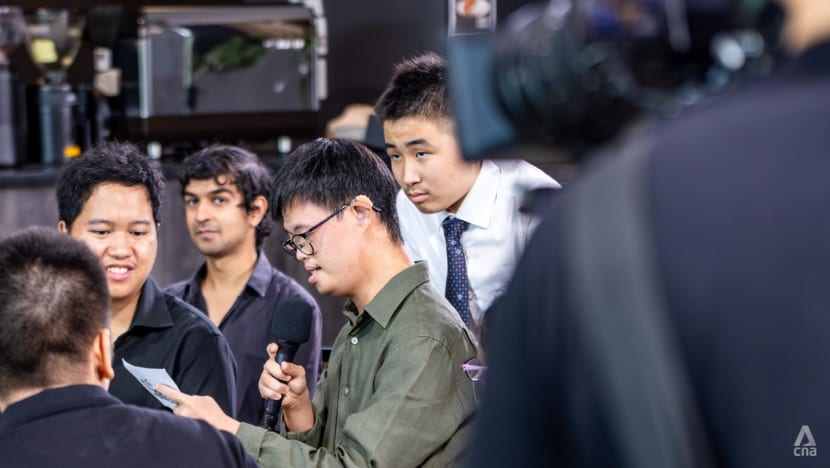
Asked what the biggest was, he said there were times when he was “in a position to make a change” but held back owing to what had been put in motion already.
“You don’t want to crowd the agenda. You push it off, and then you miss the chance,” he said without going into detail. “It’s a mistake of omission, not a mistake of commission.”
Joel Lee, 27, who has autism, asked if Ong — once considered a potential candidate for the premiership — ever aspired to the role.
“Not that you want to be (prime minister), but you’re prepared to take it up,” replied the minister. “Having … decided to enter politics, I think if you’re entrusted (with the role), you have to try to take it up.”
But it involves “a lot of sacrifices”, which apply to ministers and MPs too, he said. “We have no weekends,” he continued. “Your family ends up sacrificing as well, in terms of privacy … (and not) having enough time with you.”
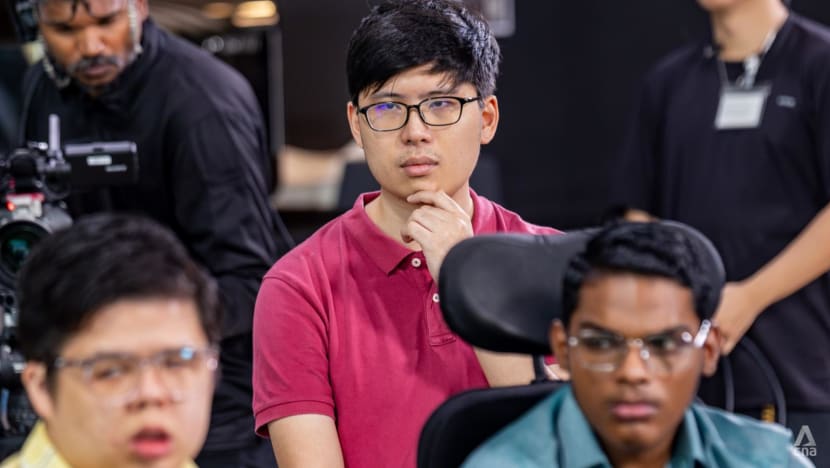
He now hopes his “old friend”, Prime Minister Lawrence Wong, whom he has known since the early 2000s and who has “a very strong set of qualities”, will be well supported.
On health policies, Ong talked about home palliative care.
His ministry is expanding the care capacity at home by 50 per cent to 3,600 places by this year, while also increasing inpatient and day hospice capacity. And personal experience has helped to shape his views on end-of-life care.
His grandmother who raised him while his parents worked ended up having advanced lung cancer. He was “very close to her” and recalled how she would complain in Teochew about staying in hospital: “Kiah jit meh kio kiah jit nee.”
That means a night in hospital feels like a year.
Ultimately, she died in hospital. With today’s standard of palliative care, however, he thinks she could have been cared for at home. “It would’ve been her dying wish,” he said.
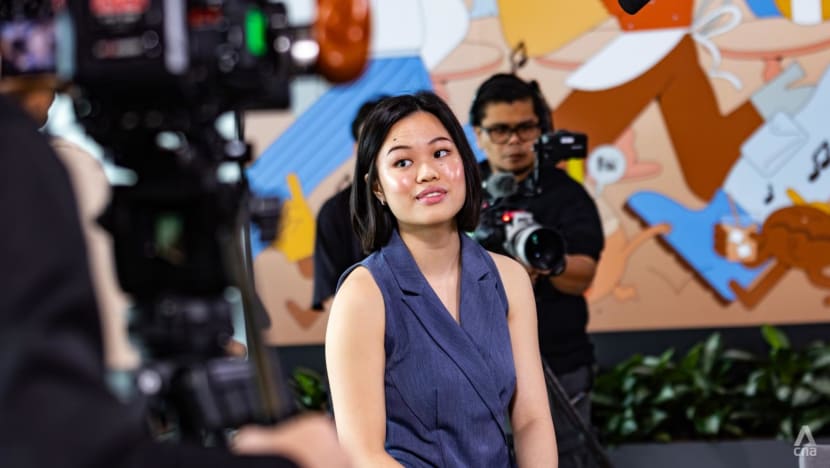
His mother also died in hospital, though in a more comfortable setting.
“One thing the palliative nurse taught me was that the organs will start to fail, but the ears are the last to go,” he recounted. “Therefore (I should) talk to her and read to her.”
So he read her a Christian sermon each day for some months, he shared. She died peacefully in December 2014.
“I find that the great majority of Singaporeans would like to go in a comfortable environment without too many medical interventions and surrounded by loved ones,” he added.
“GRAMMAR IS TORTUOUS”
Perhaps what really surprised Ong’s interviewers was how it took him “a long time” to pick up English growing up: He started reading in Primary 2 and only got the hang of writing when “forced to write essays” at university.
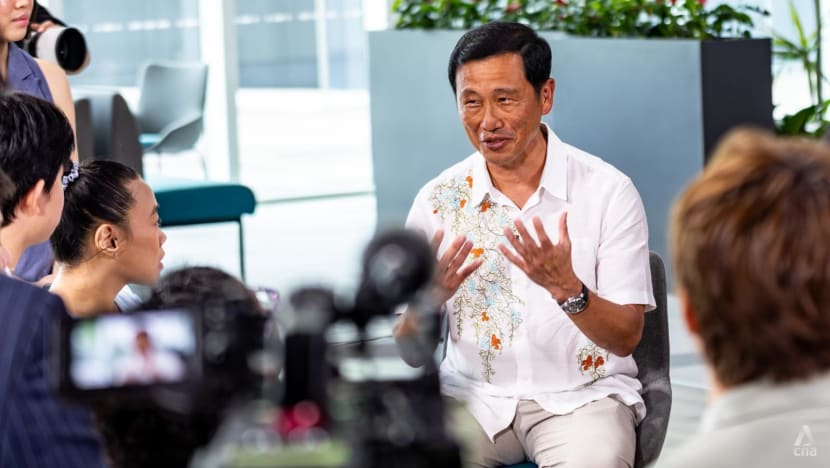
Did people make fun of him back in school because he could not speak English, asked Vincent Ng, who has autism.
The reason they did not, according to Ong, was that many of his schoolmates were in the same boat — from a Chinese-speaking background. They were just a quiet bunch who did not say much because English was a struggle.
Sometimes he still feels insecure about his command of English, he said in reply to another question, as grammar “doesn’t come naturally” to him.
“If you hear me deliver a speech, and I make grammar mistakes, that was me (who wrote it),” he said with a laugh.
“My brain is wired, from a very young age, for the Chinese language. So (English) grammar came later, and grammar is tortuous.
“Thankfully, there’s now autocorrection.”
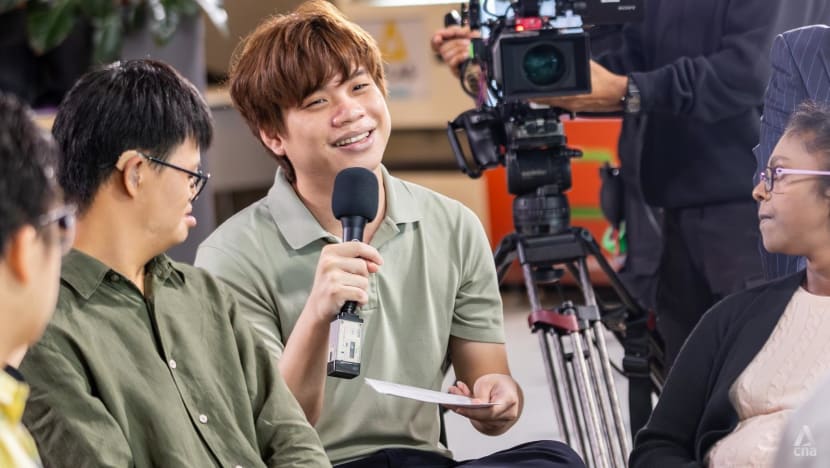
Yet he has no trouble connecting with the masses on social media. Among the 4G ministers — other than the prime minister — Ong has the most followers, numbering more than 150,000 averaged across Facebook, Instagram and TikTok.
It was not something he realised until Choo Jun Wei, who has autism, pointed it out.
Almost every social media video Ong puts out, however, is a collective effort. “I may come up with the idea, but then the team will give it substance,” he said. “Sometimes it’s the other way round.”
His social media strategy is based on three rules: No “boh liao”, or pointless, content; always include a health message; and post not more than once a week. Underpinning all that, the process should be fun, he said.
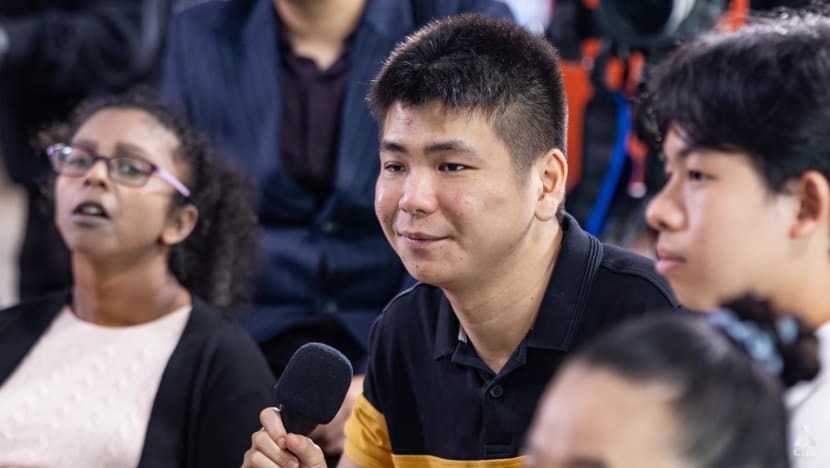
“People always say (to me), ‘You’re very hard to approach’ (or) ‘You always look a bit … unhappy, pissed off even,’” he said, blaming his “resting angry face”. “Actually, I’m a jovial, gregarious and funny person.”
But his daughters, who are in their 20s, may not find him “cool”, he quipped. “I’m just Papa. And Papa sometimes is a bit square. Papa sometimes doesn’t understand Gen Z and Gen Alpha. But I’m coping.”
Whatever the case, he does not plan on losing his sense of humour — something he believes is the most important quality in life.
Watch this final episode of The Assembly here.















